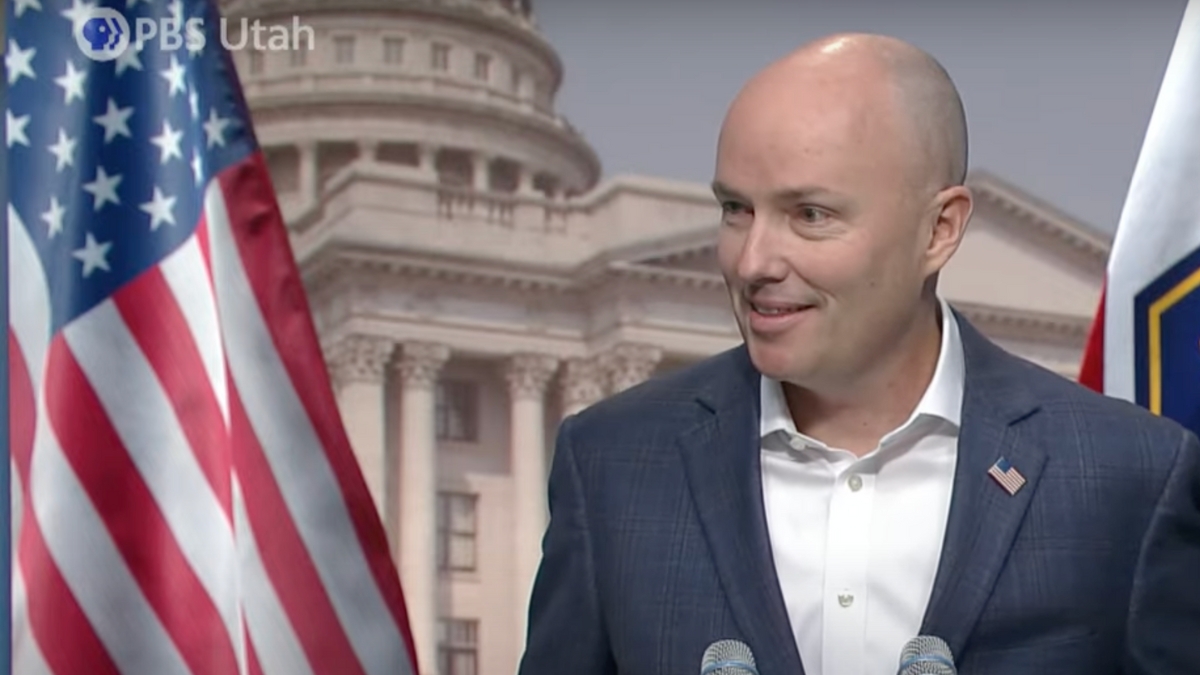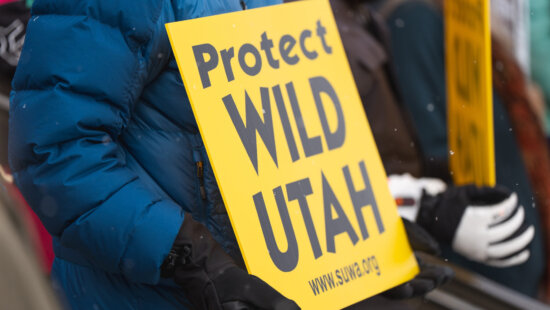Politics
While agreeing with the ‘principle,’ Cox worries about rural consequences of defunding public media

Gov. Cox delivers his monthly address on March 10, 2025. Photo: PBS Utah
During his monthly news conference, Utah’s governor said he hoped local stations are allowed to keep funding through grants
SALT LAKE CITY, Utah – As a legislation that would repeal previously-approved funding for NPR and PBS clears key hurdles in Congress, Utah Gov. Spencer Cox has concerns on how defunding public media could affect public safety, especially in the state’s rural areas and tribal nations.
“One of the things I’m most worried about is that these cuts actually won’t help, or won’t do what some members of Congress think will do. PBS and NPR will still go on, probably doing what they do,” Cox said on Thursday, during his monthly news conference broadcast by PBS Utah. “But the locals, PBS Utah, who are doing great things and great programs like this, which I hope adds some value, these are the things that are going to be cut.”
The U.S. Senate voted 51-48 to approve a rescission package at about 2:30 a.m. on Thursday, sending the bill back to the House for final consideration before hitting President Donald Trump’s desk for his signature before a Friday deadline. So far, all Utah’s congressional delegation has voted in favor of the bill.
While Cox shares some of the concerns Republicans have voiced against public broadcasting institutions, arguing that “partisanship has infiltrated” in some of them, he said he worries rural residents and tribal nations will be left without an important resource during emergencies.
PBS Utah is slated to lose about $2 million in funding if the package passes. KUER, one of the state’s NPR member stations, would lose about $500,000, according to KUER.
“While I agree with the idea and principle, I worry that the unintended consequence will be the exact opposite,” Cox said. “We’ll still have a hyper-partisan NPR and we’ll just lose the good things that are actually necessary for tribal people, for our rural communities, and for our ability to have programs.”
Cox hasn’t discussed the issue with Republicans like Utah Sen. Mike Lee, a loud supporter of revoking NPR’s public funding. But, he said, he’ll work with the Utah delegation, hoping there could be a solution for stations, maybe in the form of grants supporting local institutions.
Additionally, after the passage of Congress’ tax and spending package also known as the “big, beautiful bill,” Cox said that his office will be working with the state legislature to study its effects on Medicaid and the Supplemental Nutrition Assistance Program, or SNAP.
It’s still unclear exactly how many people will lose health care coverage with the cuts, but a report issued by the Congressional Joint Economic Committee’s Democratic staff estimates 188,494 people in Utah will be at risk of losing coverage.
“We end up paying for this one way or another. If people don’t have health care coverage, they end up going to the emergency room, which is where you get the most expensive care,” Cox said. “All that does is raise rates for everybody else in the state.”
The state will implement a work requirement for Medicaid enrollment and will help people get on private insurance, Cox said. As for SNAP, maybe the state will be able to ramp up its funding if the budget allows it.
But, the governor isn’t necessarily certain whether these cuts will come to fruition, especially when they are scheduled to be made in the future.
“We’ve seen this before. We saw this under President Obama, where they pass a bill and they’re going to pay for it with cuts in the future, and then those cuts never happen because the Congress ends up feeling the heat, and then they change the law a year later to prevent that from happening,” he said.
On the dangers of internet and AI
Cox has cited the emergence of artificial intelligence and data centers as one of the reasons why the state needs to step up its energy game. While he believes that the U.S. needs to win the AI race against China and Russia preparing the infrastructure for the technology, he remains cautious about its dangers.
He used to be a “tech optimist,” excited about how the internet and social media could connect people, but now, seeing how it has helped raise anxiety and depression rates among young people, and how it has contributed to polarization in the country, he pushed to remove the AI regulation moratorium from the “big, beautiful bill.”
Citing how social media “led directly to assassination attempts” and the shootings of Minnesota Democratic lawmakers and their spouses, he said he believed AI will have repercussions “1,000 times worse.” Now Utah is looking at “the most dangerous uses of AI,” to put guardrails around what could become a huge addiction for people.
About Lee’s now-deleted tweets appearing to make jokes about the suspect accused of shooting the Minnesota lawmakers and their spouses, Cox didn’t expand much.
“I thought they were awful,” he said.
Written by Alixel Cabrera for Utah News Dispatch


















